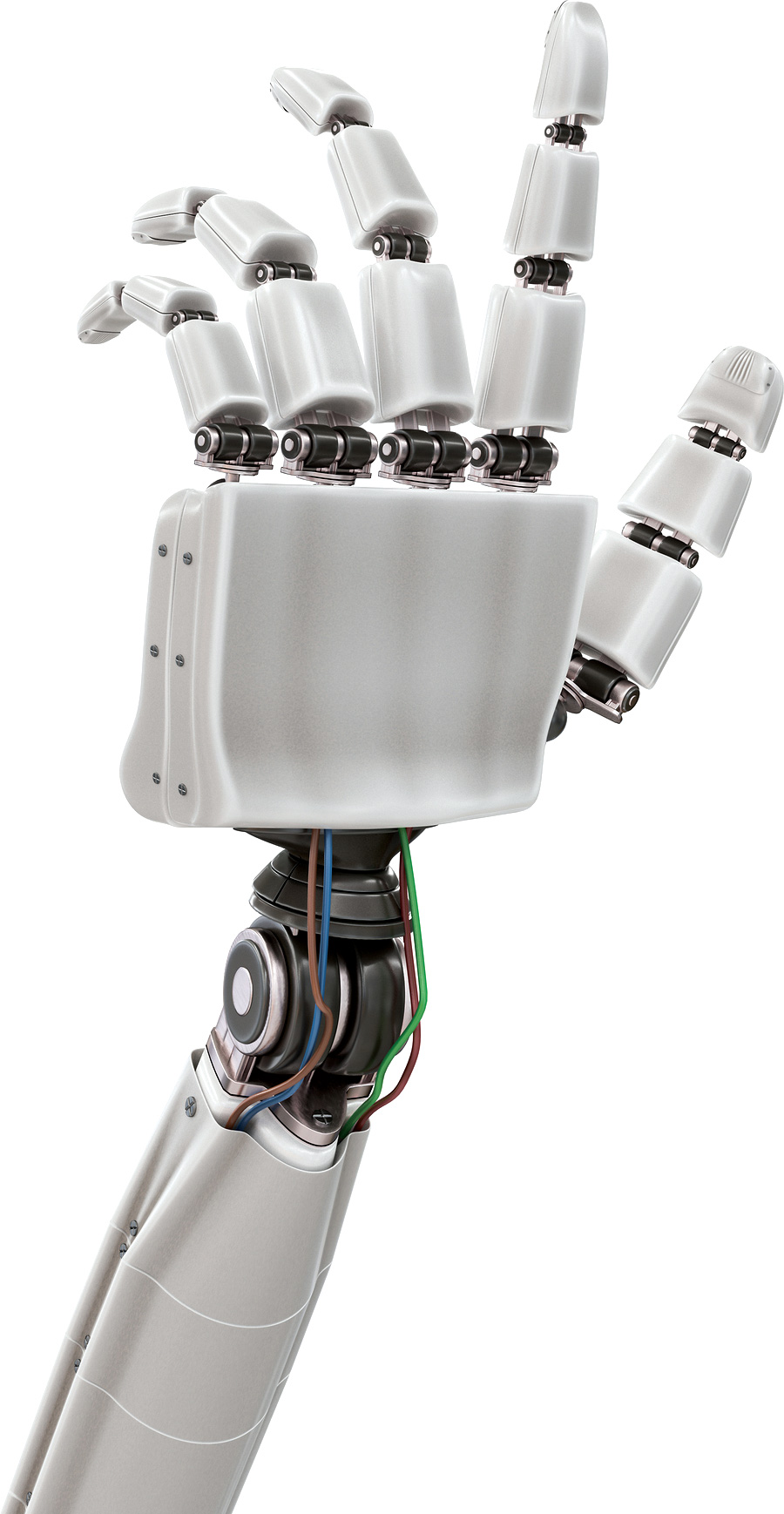G20 Executive Talk Series
Technology
Authored by: Caroline Holmund
Learning from the Luddites:
Harnessing Modern Tech for Good
As menial, long-hours-for-low-pay jobs have become mechanized, people have moved on to occupy higher paying jobs that allow for more free time and disposable income to spend on well-being.
Donald Trump has been lauded for keeping his promise to workers at air-conditioner manufacturer Carrier, keeping at least 800 jobs from going to Mexico via direct intervention. In many ways, Trump’s approach encapsulated the policies he advocated on the campaign trail: cutting regulations and slashing corporate taxes to bring manufacturing jobs back to America.
Unfortunately for Trump, that strategy fails to address the underlying shift driving job displacement across the planet: roboticization. Trump’s proposals are, in fact, another example of policymakers offering analog solutions to the problems of the digital age.
The disruptive role of technology in labor markets has been a constant feature of our modern world, dating back to when workers in 19th-century England smashed up weaving machines whose speed and efficiency put them out of work. Even with the hardship caused to those who lost their jobs, few would argue that society is not materially better off 200 years later. This is the same point a now-famous Deloitte study made last year: although technology has destroyed jobs over the past 140 years, it has created even more.
The kinds of jobs destroyed and created machines also tell a story about how quality of life has progressively improved as technology has advanced. As menial, long-hours-for-low-pay jobs have become mechanized, people have moved on to occupy higher paying jobs that allow for more free time and disposable income to spend on things like fitness classes and self-grooming, two sectors that have seen explosive growth over the last few decades. Not that these were the only industries to grow substantially: in the UK alone, the two decades between 1992 and 2014 saw 580% growth in
teaching and education.
Like any change, there have always been winners and losers in this process and populist leaders willing to exploit their frustration. Unfortunately for those affected, Trump-style protectionism does nothing to halt the march of technology. Many of the jobs Trump wants to bring back from China are not even being done by Chinese workers at this point, or at least not human ones: China is fast becoming one of the world’s largest importers of industrial robots, whose prices have fallen so much that they now undercut human workers.
![]() LIKE ANY CHANGE, THERE HAVE ALWAYS BEEN WINNERS AND LOSERS IN THIS PROCESS AND POPULIST LEADERS WILLING TO EXPLOIT THEIR FRUSTRATION. UNFORTUNATELY FOR THOSE AFFECTED, TRUMP-STYLE PROTECTIONISM DOES NOTHING TO HALT THE MARCH OF TECHNOLOGY.
LIKE ANY CHANGE, THERE HAVE ALWAYS BEEN WINNERS AND LOSERS IN THIS PROCESS AND POPULIST LEADERS WILLING TO EXPLOIT THEIR FRUSTRATION. UNFORTUNATELY FOR THOSE AFFECTED, TRUMP-STYLE PROTECTIONISM DOES NOTHING TO HALT THE MARCH OF TECHNOLOGY.![]()
The ramifications of this so-called third industrial revolution reach into every sector of the economy and society. Take energy production: after years of actively denying the existence of climate change while benefitting heavily from government subsidies, fossil fuel companies are now radically reorienting themselves to catch the crest of the renewable energy wave. Industry giants like Shell, Statoil, and Exxon have recognized that the markets for their core products are shrinking and are investing billions into developing green energy to ensure their own survival.
While the common narrative is that this shift will cost fossil industry workers jobs, a growing body of evidence suggests this doesn’t have to be the case. Researchers at Oregon State University found growing employment in the solar industry could easily make up for jobs lost in coal over the next decade and a half. Their study notes that the solar industry is growing 12 times faster than the rest of the economy and already employs more than 208,000 workers, as opposed to the 150,000 employed in the coal industry. With the right training, the vast majority of those coal workers could transition to solar and see a marked wage increase in the process. Interestingly, the only people that would make less in this grand transition would be the executives who will now be writing American energy policy.

![]() DONALD TRUMP IS HARDLY ALONE IN BEING LEFT BEHIND BY TECHNOLOGY, OF COURSE. FOR YEARS, POLICYMAKERS HAVE BEEN RESORTING TO BLUNT AND OUTDATED POLICY TOOLS TO COME TO GRIPS WITH THE EXPLOSION OF “SHARING ECONOMY.
DONALD TRUMP IS HARDLY ALONE IN BEING LEFT BEHIND BY TECHNOLOGY, OF COURSE. FOR YEARS, POLICYMAKERS HAVE BEEN RESORTING TO BLUNT AND OUTDATED POLICY TOOLS TO COME TO GRIPS WITH THE EXPLOSION OF “SHARING ECONOMY. ![]()
Donald Trump is hardly alone in being left behind by technology, of course. For years, policymakers have been resorting to blunt and outdated policy tools to come to grips with the explosion of “sharing economy.” The apps we now use to book lodgings and call for rides have upended the hospitality and taxi industries, and lawmakers on both sides of the Atlantic have been scrambling to keep pace with companies like Uber and Airbnb. While these new companies and their competitors enjoy breakneck growth, the policy response has been flatfooted and largely beholden to the interests of the traditional industries now being replaced. None of this benefits consumers, who stand to gain considerably from the sharing revolution and the newfound accessibility it brings. These new services also provide an outlet for thousands of micro-entrepreneurs, who use the platforms as vectors to create their own businesses.
Unsurprisingly, regulators are also having a hard time with the advent of tech-driven consumer products. E-cigarettes are one prominent example. Doctors in the UK have embraced the electronic devices as a tool for quitting smoking, but the American Surgeon-General has come out rubbishing those potential benefits and the global Framework Convention on Tobacco Control, or FCTC, used its most recent conference in New Delhi to insist that governments treat e-cigarettes as just another form of tobacco. What’s more, FCTC participants voted unanimously to ban all journalists from assisting in the event, thereby imposing a media blackout on the proceedings. This is an unfortunate trend: increased awareness among consumers about the dangers of cigarettes has forced the market to adapt, and e-cigarettes allow the world’s billion or so smokers to manage their nicotine habit in a way that is 95% less harmful. That might be why the big tobacco companies, like the fossil fuel giants, are considering giving up their flagship products entirely.

Unsurprisingly, regulators are also having a hard time with the advent of tech-driven consumer products. E-cigarettes are one prominent example. Doctors in the UK have embraced the electronic devices as a tool for quitting smoking, but the American Surgeon-General has come out rubbishing those potential benefits and the global Framework Convention on Tobacco Control, or FCTC, used its most recent conference in New Delhi to insist that governments treat e-cigarettes as just another form of tobacco. What’s more, FCTC participants voted unanimously to ban all journalists from assisting in the event, thereby imposing a media blackout on the proceedings. This is an unfortunate trend: increased awareness among consumers about the dangers of cigarettes has forced the market to adapt, and e-cigarettes allow the world’s billion or so smokers to manage their nicotine habit in a way that is 95% less harmful. That might be why the big tobacco companies, like the fossil fuel giants, are considering giving up their flagship products entirely.

None of this is to say it’s impossible to come up with an effective regulatory framework to govern new technologies. What we should expect from lawmakers is realism: no law can forcibly bring the coal industry back to life, or conjure non-existent manufacturing jobs in the American heartland when a robot can do the same job more quickly and cost-effectively. Technological advances have always come with costs and benefits, and it is our job to minimize the former while harnessing the full potential of the latter.